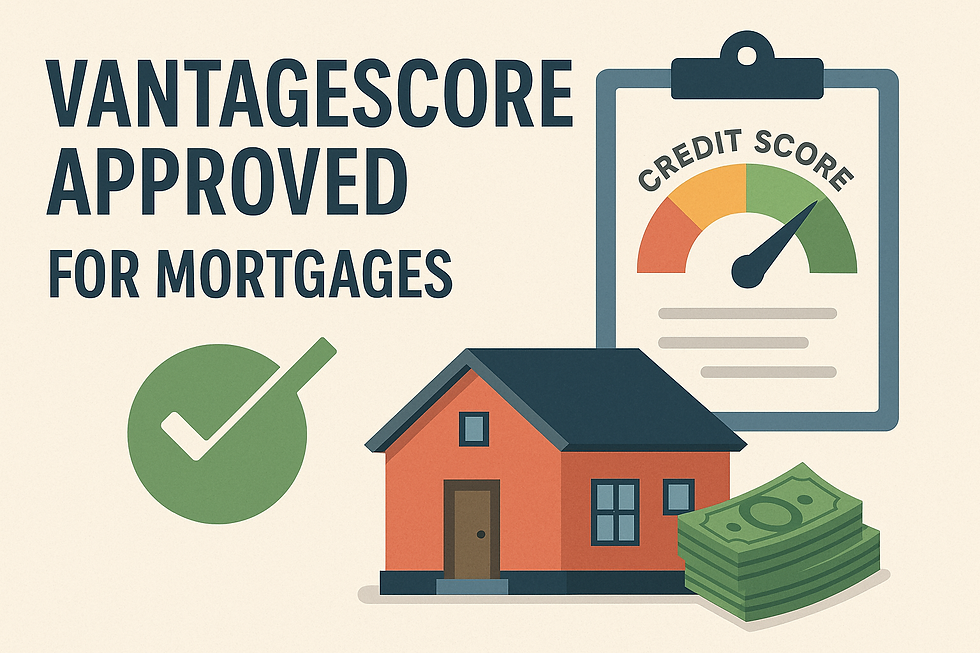Top Reasons Why People Refinance Their Mortgage
- Paul Cantor

- Sep 18, 2024
- 3 min read
Refinancing a mortgage is a financial move that many homeowners consider at some point. Whether you’re looking to save money, tap into your home’s equity, or manage debt more effectively, refinancing can offer several benefits. But what exactly drives people to refinance their mortgages? Let’s explore some of the key reasons why refinancing might make sense for you.

1. Lower Your Interest Rate
One of the most common reasons homeowners refinance is to lock in a lower interest rate. If mortgage rates have dropped since you first took out your loan, refinancing could allow you to reduce your monthly payments, saving you thousands over the life of the loan. Even a small decrease in interest rate can lead to significant savings, making this one of the top motivations for homeowners.
Example: Imagine you purchased your home when rates were at 5%, but today’s rates are closer to 3%. By refinancing, you could shave off a considerable amount from your monthly payments and overall interest costs.
2. Shorten Your Loan Term
Some homeowners refinance to shorten the term of their loan, from a 30-year mortgage to a 15- or 20-year mortgage. While this often results in slightly higher monthly payments, it allows you to pay off your home faster and save on interest over time.
Example: Refinancing from a 30-year mortgage to a 15-year loan means you’ll pay off your home in half the time while potentially saving tens of thousands in interest payments.
3. Switch from an Adjustable-Rate to a Fixed-Rate Mortgage
If you initially took out an adjustable-rate mortgage (ARM), you may want to refinance into a fixed-rate mortgage to lock in a stable interest rate, especially if interest rates are expected to rise. This ensures that your monthly payments remain consistent, offering peace of mind and long-term predictability.
Example: A homeowner with an ARM could refinance into a fixed-rate mortgage to avoid the risk of future rate hikes that could increase monthly payments significantly.
4. Tap into Your Home Equity
Refinancing can also be a way to tap into your home’s equity through a cash-out refinance. With this option, you replace your current mortgage with a larger loan and take the difference in cash. Many homeowners use this strategy to fund home improvements, pay for major expenses like college tuition, or even invest in other real estate properties.
Example: If your home has appreciated in value, and you have $100,000 in equity, a cash-out refinance could allow you to borrow against that equity to fund a major renovation or consolidate debt.
5. Consolidate Debt
If you’re carrying high-interest debt, like credit cards or personal loans, refinancing your mortgage can be a way to consolidate that debt at a much lower interest rate. This can simplify your finances, reduce the total amount you owe in interest, and free up more cash flow each month.
Example: A homeowner with $20,000 in credit card debt at a 15% interest rate could refinance their mortgage and pay off that debt at a much lower mortgage rate, saving money each month and over time.
6. Improve Cash Flow with Lower Monthly Payments
Sometimes homeowners choose to refinance simply to reduce their monthly payments, especially if they’re facing financial hardship or need to free up cash for other expenses. Refinancing to a longer-term loan can lower your payments and help improve cash flow, even if it increases the overall length of your mortgage.
Example: A homeowner struggling with monthly expenses could refinance to extend their mortgage from 20 years to 30 years, reducing their payments and providing more financial breathing room.
7. Remove Private Mortgage Insurance (PMI)
If your original mortgage required private mortgage insurance (PMI) because you put down less than 20%, you might be able to refinance to remove it once you’ve built enough equity. This can lead to significant monthly savings, especially if the value of your home has increased since you first bought it.
Example: A homeowner with less than 20% equity at the time of purchase may be paying several hundred dollars per month in PMI. After building equity through regular payments and rising home values, refinancing can eliminate that extra cost.
Conclusion
Refinancing your mortgage can be a powerful financial tool if done at the right time and for the right reasons. Whether your goal is to save money, pay off your mortgage faster, or consolidate debt, a well-timed refinance could help you achieve your financial goals. However, it’s important to weigh the costs and benefits carefully and consult with a mortgage advisor to determine if refinancing is the right move for you.
If you’re considering refinancing, reach out to us today to discuss your options and see how you can make the most of your home’s equity and current market conditions. www.CantorTeamHomeLoans.com.




Comments